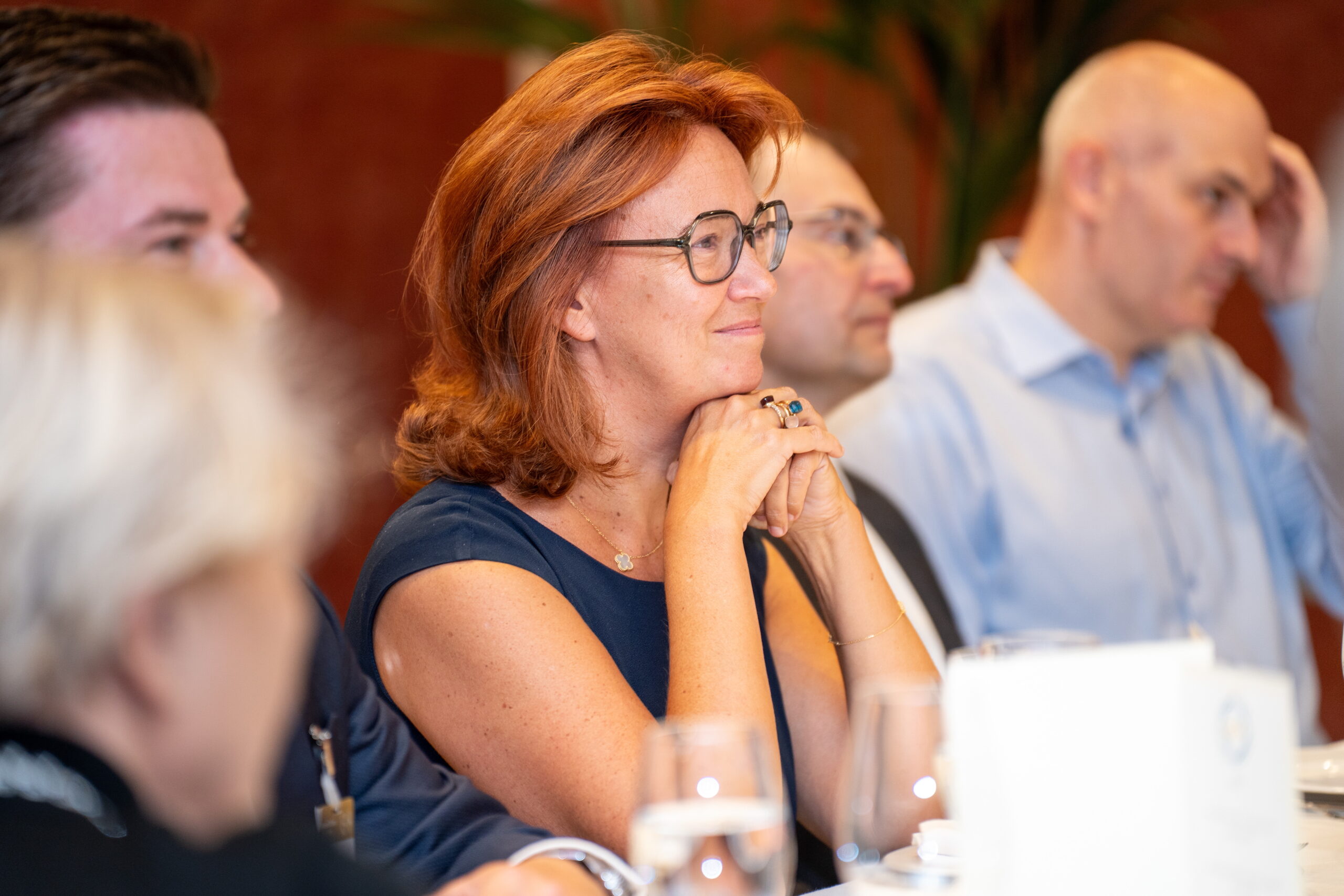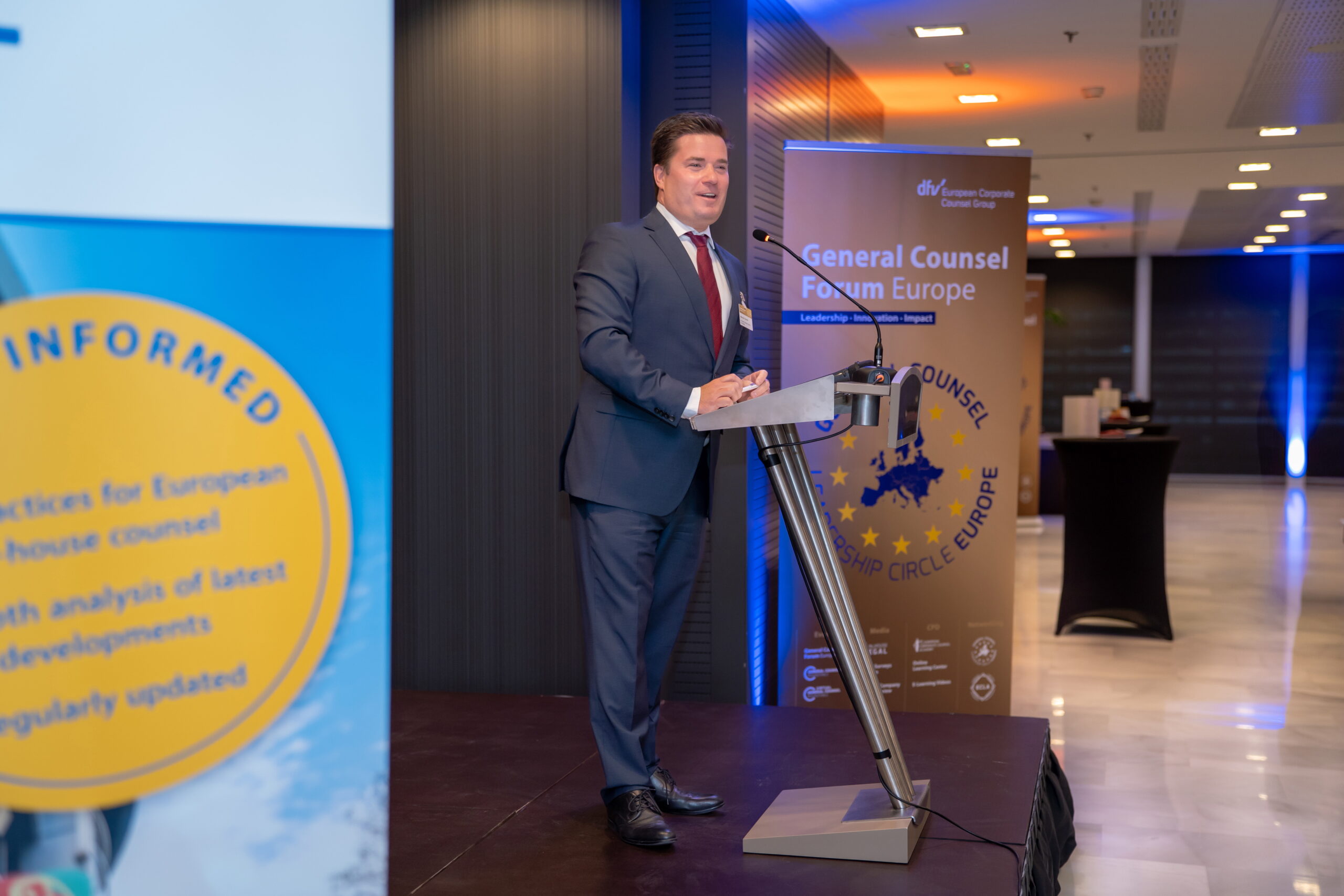Next-Gen Single Market: will general counsel reshape Europe?
For Stéphanie Fougou and Marcus M. Schmitt of ECLA, the answer is yes: the legal function is becoming the driving force behind the transformation of European businesses
THIS ARTICLE APPEARS IN THE NEW ITALIAN ISSUE OF MAG. CLICK HERE TO DOWNLOAD YOUR FREE COPY
Madrid, late afternoon. The lights at the General Counsel Forum 2025 organized by ECLA are dimming, but the buzz in the hotel corridors shows no sign of fading. The two hundred in-house lawyers who attended the two-day Madrid event are saying their goodbyes after 48 hours of discussions on AI, ESG, and governance within the context of the Next-Gen Single Market—the European strategy aimed at building a more integrated, innovative, and competitive single market.
Nearby, speaking with MAG, Marcus M. Schmitt, general manager of ECLA, reflects on what emerged: “In-house lawyers are not passengers. They are the pilots of change.”
Beside him, president Stéphanie Fougou smiles and adds: “That’s precisely the point: European general counsel are taking on a key role in corporate transformation. They’re strategic, not just for managing risk, but for driving change in a responsible and sustainable way.”
This dual vision reflects the soul of ECLA, the organization that for over forty years has represented and connected in-house lawyers across Europe. Founded to give voice to a constantly evolving profession, today ECLA is the reference point for an international community that gathered in Madrid to discuss the future of legal departments and their role in the new European landscape.
Beyond compliance: general counsel as the hinge of change
“Chief legal officers can no longer simply ensure everything is compliant,” Fougou tells MAG. “Today, they are leadership figures, called upon to participate in strategic decisions, to propose long-term visions, to guide the digital and sustainable transition of businesses.”

An evolution that, according to Schmitt, is now irreversible: “The European Union is trying to reduce bureaucracy and barriers. And who better than an in-house lawyer, who understands both law and business, can help companies translate this evolution into practice? General counsel are the right people to transform complexity into opportunity.”
In the new scenario outlined by the Next-Gen Single Market, the corporate legal function is no longer perceived as a constraint, but as an accelerator of innovation, transparency, and trust. And ECLA, through its forums and initiatives, aims to help define the new identity of the European in-house lawyer: a strategic professional, aware of their impact, capable of acting as a bridge between business, society, and institutions.
The European agenda and barriers to dismantle
More than thirty years after the birth of the single market, Europe remains fragmented by legal, fiscal, and regulatory differences. But the Next-Gen Single Market project aims precisely to overcome these disparities, opening a new phase of integration and competitiveness. “European businesses,” Schmitt observes, “coexist with twenty-seven different legal and tax regimes. It’s a legacy that slows growth and hampers innovation. But the so-called ’28th regime’ project – a single regulatory framework to operate alongside national ones – could represent a watershed moment: a more coherent and accessible context for operating across borders. A ‘parallel European lane,’ the same for everyone, clearer and more efficient.”
A change that, according to Fougou, cannot be left solely to European institutions. Because general counsel will play a decisive role in this process, called upon to act as a bridge between business and regulators. “Today, general counsel are no longer mere interpreters of rules,” she explains. “Instead, they are interlocutors with institutions. They contribute to regulatory simplification and to developing policies that promote competitiveness and innovation. It’s a role that requires vision, courage, and the ability to bring together different interests.”
Leading with purpose
If Europe is changing, so is the profession. Digitalization, artificial intelligence, ESG, proliferation of regulations: the challenges are numerous, but they also represent a great opportunity for growth.
Fougou emphasizes: “General counsel must master technology without being overwhelmed, but, on the opposite, integrating it into decision-making processes. They must be agile, curious, open to the new. And above all, they must lead with purpose: new generations are looking for leaders who convey meaning, not just rules. This is the key to attracting and motivating talent.”
For Schmitt, the transformation is already underway: “The general counsel of the future will be a ‘generalist specialist’ capable of combining technical knowledge and strategic vision. The profession is becoming broader, more fluid, closer to the issues that determine corporate competitiveness. And that’s precisely what makes it so fascinating today.”

The future of the European general counsel
Looking ahead, Fougou is convinced that the profession will become increasingly influential: “The in-house lawyer is not just the guardian of legality, but the promoter of ethical and sustainable change. They are the ones who translate European values – transparency, fairness, rule of law – into concrete actions within companies. Their role will be increasingly strategic, but also more human.”
Schmitt partakes of this optimism: “The future of the general counsel will be even more exciting than the past. The Next-Gen Single Market needs these figures: professionals who combine law, innovation, and vision. Meanwhile, ECLA will continue to be their European home, a place for dialogue, training, and collective growth.”
On this note, ECLA’s goal is to become a platform for dialogue and collaboration among in-house lawyers across the continent. “Every year,” Fougou explains, “we publish benchmarks that capture the reality of the profession in Europe. In many countries, these studies have become tools for advocacy and dialogue with institutions. But the real value lies in sharing: in our working groups, general counsel pool experiences, policies, and models on topics like AI, ESG, governance, and legal operations. This is how we build a European culture of the profession.”
“ECLA,” Schmitt adds, “is no longer the ‘Sleeping Beauty’ of the past. Today it’s a living, connected network, where professionals from twenty-four countries meet every week – even virtually. Our AI Breakfasts, for example, are moments of informal but content-rich exchange, where we discuss technology, budgets, and legal team organization. It’s a community in motion, and its impact grows year after year.”
An impact that extends beyond the association’s boundaries and is reflected in the daily operations of European legal departments where, in the midst of the transition toward the Next-Gen Single Market, general counsel face a crossroads: remain technical figures or become true protagonists of change.
The Madrid gathering showed that many have already chosen the latter path. And it is there, between the complexity of rules and the push for innovation, that the battle for Europe’s legal and economic future is being fought.











